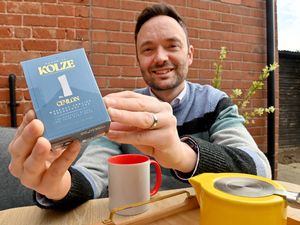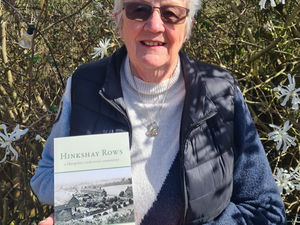Flashback to 1988: How Shropshire pub plot nearly led to MP's prosecution
1988. One rule for us, another rule for them. Sound familiar?

It was something which underpinned a remarkable private prosecution brought in 1988 by a Shropshire solicitor against a maverick MP.
And it had all been dreamt up in a Telford pub.
Labour's Ron Brown, the MP for Edinburgh Leith, had been so worked up during a debate in the House of Commons that he grabbed the ceremonial mace, one of those forbidden actions as it is the symbol of the sovereign's authority, and went on to drop it – he denied he had thrown it down – and damage it.
As a result he was suspended from the chamber on full pay for a month.
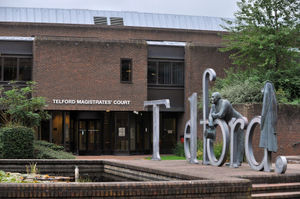
John McMillan, a Glaswegian, and a Telford solicitor who appeared day in and day out defending people at Shropshire courts, was discussing what Brown had done with colleagues at their favourite watering hole, the Malt Shovel in Leegomery.
It was there that the idea began to form of bringing a private prosecution.
How could it be right, he felt, when his clients who committed criminal damage would at least be hit with a fine, that an MP who damaged the historic ceremonial mace did not get a fine or punishment but was instead given a paid holiday?
So Mr McMillan went to Telford Magistrates Court asking the magistrates to sign the summons, telling them that if the incident had involved anyone other than an MP, they would have been brought before the court.
The magistrates signed the summons requiring the MP to come to the Telford court on June 3, 1988, to answer the charge.
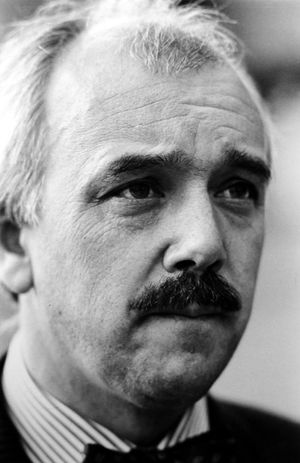
After the hearing, Mr McMillan said he was deeply concerned that clients of his who did not have the status of an MP were brought before courts every day on charges of criminal damage.
"The man in the street stands to lose his liberty or to be fined substantial amounts. When an MP is involved, he should not escape prosecution," he said.
"The only sanction that appears so far to have been enforced is that he has got a month's paid leave from work.''
For some days afterwards agents in Scotland acting for Mr McMillan tried unsuccessfully to serve the summons on the mace-dropping MP, and thought they had finally managed to do so in the road outside the Triangle Club in Edinburgh.
Brown however claimed afterwards that the document had fallen to the ground and was kicked away by the crowd.
"Mr Brown is rather in the habit of dropping things,'' said Mr McMillan when he heard about it.
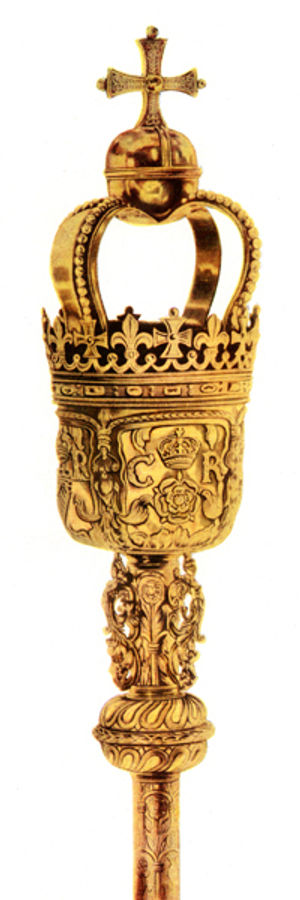
Meanwhile the Labour Party handed out its own punishment, withdrawing the party whip from the Left-winger for three months.
Brown did not answer the summons to appear at Telford magistrates on June 3.
Outlining to the court the alleged offence, Mr McMillan said that at the end of the debate on Supplementary Benefits Appeals, Brown threw some papers on to the floor, picked up the mace and threw or dropped it to the ground.
"The House of Commons mace is property of the Crown. It dates from the 1600s and is of silver gilt. It is probably the same mace which was described by Oliver Cromwell as 'that bauble' when he had it removed by armed force from the House of Commons on April 20, 1653.
"It is a national treasure, the symbol of Royal authority and of Parliament's authority.''
It was damaged at both ends and the Crown jewellers' estimate for repairs was about £1,500.
After withdrawing for about half an hour to consider, the magistrates issued a warrant for the arrest of the MP.
But as the stakes got higher, the wheels of officialdom were turning. There was some concern at Westminster that a private prosecution against an MP involving an incident within Parliament's precincts would set an undesirable precedent.
There were also doubts whether Telford magistrates had jurisdiction over events in Parliament.
It was not to any great surprise then that on June 9 the Director of Public Prosecutions, Allan Green, QC, stepped in to prevent the private prosecution, believing Brown had been dealt with sufficiently under Commons procedure.
He didn't get off entirely. He was compelled to pay the bill to fix the mace.
A controversial figure often in the headlines of the MPs-behaving-badly sort, Brown was later deselected as Labour's candidate for the next general election.
He stood unsuccessfully in 1992 under the independent Labour banner. He died in 2007.



